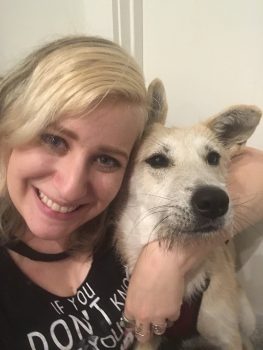 There is an interesting divide in the subject of veganism. For some, it is strictly a means to describe a dietary preference, and for others it is, in fact, a cultural movement. In this divide, the latter will often say veganism is not a diet and unless an individual follows all vegan ethics, they are “plant-based.”
There is an interesting divide in the subject of veganism. For some, it is strictly a means to describe a dietary preference, and for others it is, in fact, a cultural movement. In this divide, the latter will often say veganism is not a diet and unless an individual follows all vegan ethics, they are “plant-based.”
The term “vegan” was first established in 1944 from the “first three and last two letters of ‘vegetarian’” or “the beginning and end of vegetarian.” It wasn’t until 1988 that a formalized definition of veganism was accepted. Veganism is “…a philosophy and way of living which seeks to exclude—as far as is possible and practicable—all forms of exploitation of, and cruelty to, animals for food, clothing or any other purpose; and by extension, promotes the development and use of animal-free alternatives for the benefit of humans, animals and the environment. In dietary terms it denotes the practice of dispensing with all products derived wholly or partly from animals.”[1] And so veganism changed simply from dairy-free, egg-free vegetarianism to a way of life.
But over the last few years, I’ve met more vegan individuals who have their own interpretation of what it means to be vegan vs plant-based. I met one passionate vegan who said that if a vegan is mean to other humans, they are not vegan, but plant-based. Another added that if a vegan individual uses single-use plastic, they are really plant-based. Palm oil is another heated argument and I’ve been told several times that palm oil is not vegan.
 Some people have put forth the argument that a person cannot “try” to be vegan for a week as they are only making dietary changes and are still wearing/purchasing leather. An unpopular reality of our world is that if an individual eats a whole foods, plant-based diet, but purchases leather shoes twice a year, they are contributing less harm to the world than an ethical vegan who relies on processed foods made with palm oil. So where is the moral baseline?
Some people have put forth the argument that a person cannot “try” to be vegan for a week as they are only making dietary changes and are still wearing/purchasing leather. An unpopular reality of our world is that if an individual eats a whole foods, plant-based diet, but purchases leather shoes twice a year, they are contributing less harm to the world than an ethical vegan who relies on processed foods made with palm oil. So where is the moral baseline?
I became vegan for ethical reasons, yet I struggle with the term as it implies that others are not ethical. I can see the good that comes from another person reducing or abstaining from all animal products in their diet. Maybe some of these people will start to switch over to non-leather shoes and cruelty-free cosmetics, and maybe they will not. They are still trying their best to further their compassion whether it is for themselves (health), the environment, animals or other humans. Maybe by being exposed to all the information behind the meat industry and factory farming, they will change. Or maybe not. Some people are unwilling to budge old habits or don’t see the significance of one ripple in a movement.
 Less than 1% of the world’s population is vegan.[2] Setting veganism as the moral baseline creates a bleak reality where less than 1% of the population have minimum morality. As a child I wanted to believe that all people have goodness inside them. That glimmer has faded with age after reading the capacity humans have to torture others in war or sport, or for pleasure.
Less than 1% of the world’s population is vegan.[2] Setting veganism as the moral baseline creates a bleak reality where less than 1% of the population have minimum morality. As a child I wanted to believe that all people have goodness inside them. That glimmer has faded with age after reading the capacity humans have to torture others in war or sport, or for pleasure.
I choose not to believe that veganism was created to be an ethical minority in a world of cruelty, but rather to awaken a new sense of compassion and fight for it because there is good in this world.
[1] “History.” The Vegan Society, www.vegansociety.com/about-us/history.
[2] Kuper, Arthur, et al. “How Many Vegans in The World? In the USA? (2020).” Vegan Bits, 8 May 2020, veganbits.com/vegan-demographics/
 Al Miller is a MSVA graduate and designer. Al lives in Brooklyn with her rescue dog, Thisbe, who is also known as The Sass-Monster. Al currently runs Wolf + Roses Studio, LLC where she designs and sells tees and designs websites.
Al Miller is a MSVA graduate and designer. Al lives in Brooklyn with her rescue dog, Thisbe, who is also known as The Sass-Monster. Al currently runs Wolf + Roses Studio, LLC where she designs and sells tees and designs websites.


Well said, I could not agree more strongly!!